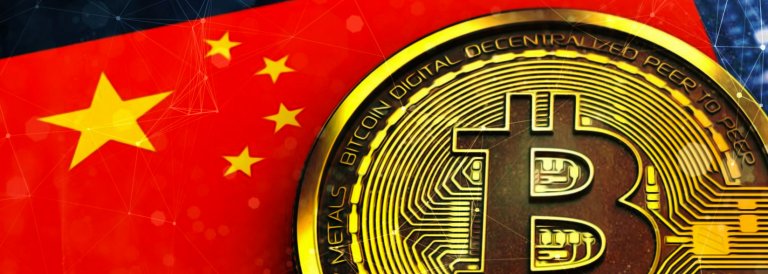 Bitcoin’s correlation with China according to Circle’s CEO Jeremy Allaire
Bitcoin’s correlation with China according to Circle’s CEO Jeremy Allaire Bitcoin’s correlation with China according to Circle’s CEO Jeremy Allaire

Cover art/illustration via CryptoSlate. Image includes combined content which may include AI-generated content.
The co-founder and CEO of Circle Jeremy Allaire affirmed that there is a “macro-correlation” between Bitcoin’s price movement and the current trade war between China and the United States that could lead to wider adoption in the Asian nation, according to a recent interview on CNBC.
Bitcoin’s correlation with China
The upswing that Bitcoin experience over the weekend that took its price up more than 17 percent from $10,500 to $12,300 can be viewed as a reaction to the Chinese yuan plummeting against the U.S. dollar, according to Allaire. Today, the yuan is trading at 7 yuan per dollar for the first time since 2008.
“I think the broader theme of Bitcoin specifically, crypto more broadly, participating in these global macro forces is becoming more and more clear. Rising nationalism, rising amounts of currency conflicts, trade wars—these all, obviously, are supportive of a non-sovereign, highly secure digital store of value,” said Allaire.
Despite the tough regulations imposed in China against cryptocurrencies, with the mainland government even outlawing the exchange of crypto since 2017, Allaire actually believes that Chinese authorities are softening their stance towards cryptos.
“We’re seeing that recently a Chinese court defended that Bitcoin is in fact legal property in China, which is significant. We’ve [also] seen one of the very largest commercial banks, Bank of China, start to do proactive information marketing about the benefits and risks of Bitcoin, but more broadly its role in the world. And then, one of the largest companies in the crypto space in China, Huobi… recently added a [Communist] Party committee to the firm, suggesting that it may be getting more alignment with the Chinese central government,” continued Allaire in the interview.
The fact is that China, and other nations around the world, is trying to create a regulatory framework that allows them to scrutinize cryptocurrencies and the intermediary entities, such as exchanges, that handle them. However, Jeremy Allaire pointed out that national and foreign governments will soon realize the difficulties behind regulating a market where “sovereign and non-state actors” are able to launch new cryptocurrencies that can instantly function with the use of the internet.
As a matter of fact, the CEO of Circle explained that the Chinese government may have already understood that Bitcoin is a “non-sovereign, highly secured mechanism to store value that can exist anywhere the internet exists” and this could be the reason why they are creating their own cryptocurrency.
“China is mobilizing to launch a global digital currency leveraging some the distribution power that they have with major internet and tech enterprises, in part as a response to Libra, but also as a global strategy to expand the footprint of how trading counterparties, businesses and consumers globally interact with China,” said Allaire.
As cryptocurrencies grow in popularity and Bitcoin becomes the preferred choice for Chinese investors during times of economic turmoil, China appears to be moving ahead with the adoption of the technology leaving the U.S. behind. It remains to be seen the actions that the Chinese government will take if capital continues to flow into cryptos as a result of ongoing trade war with the United States.




 CryptoQuant
CryptoQuant 



























































































